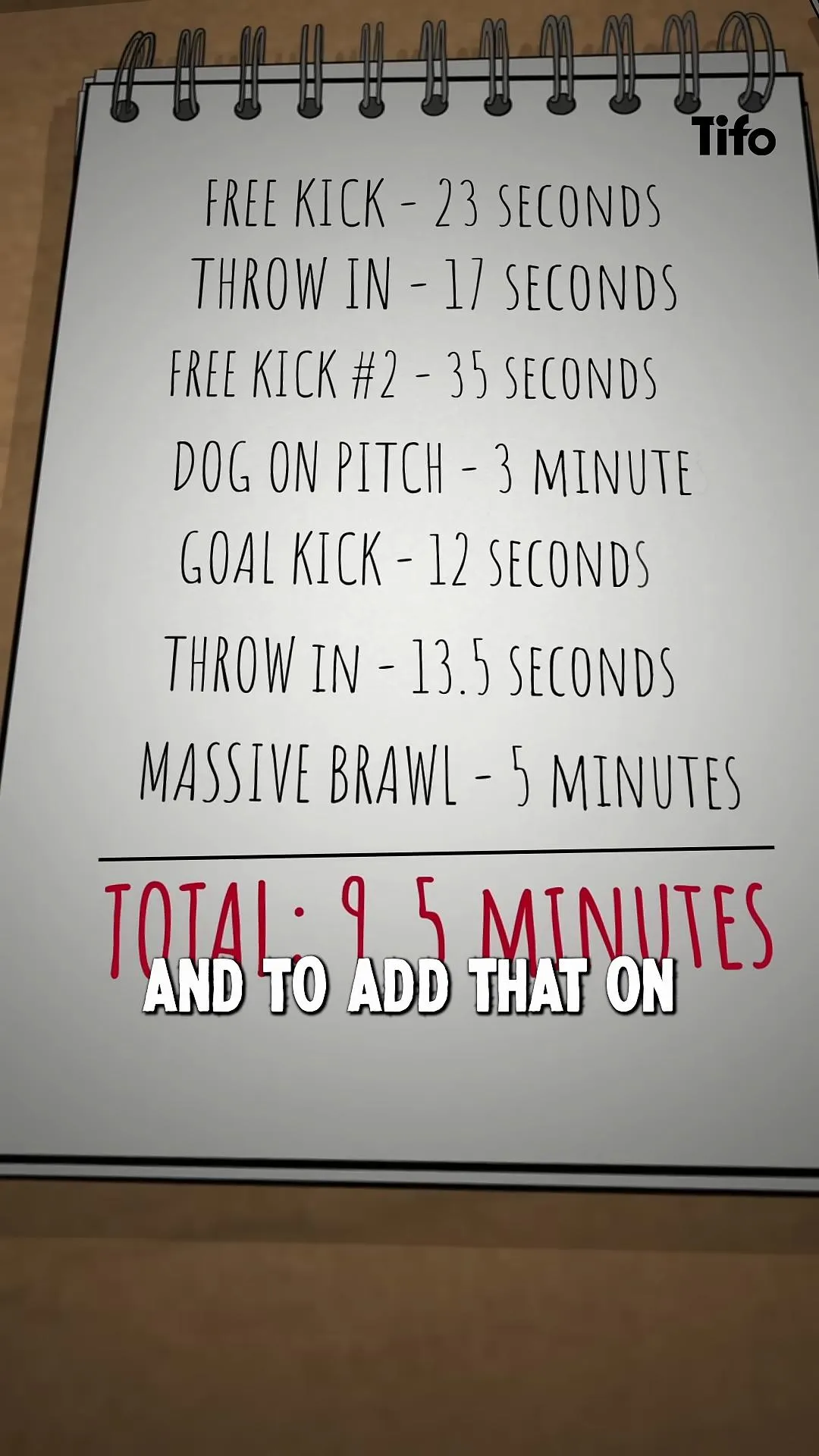The Football time-wasting rule has become a hot topic in the world of soccer, particularly as leagues strive to improve the flow of the game. Are referees really equipped to manage the added time accurately? What does this mean for players and fans alike? The new rule, which encourages referees to add time lost during stoppages, aims to ensure that the ball is in play for more extended periods, enhancing the overall experience for everyone involved. As we delve into this new regulation, we’ll explore its effects on matches, player strategies, and fan engagement.
Understanding the Football Time-Wasting Rule
The Football time-wasting rule is designed to combat the pervasive issue of time-wasting in matches. In the previous season, Premier League matches averaged only 55 minutes of active play, a statistic that has raised concerns among fans and officials alike. This regulation comes into effect from the start of the 2023-2024 season, highlighting a commitment to improving the quality and pace of the game.
Why Was the Rule Introduced?
Time-wasting has become a common tactic among teams looking to maintain their leads. This practice not only frustrates fans but also detracts from the spirit of the game. The introduction of the new rule aims to:
- Increase the amount of time the ball is in play.
- Minimize disruptions caused by dead-ball situations.
- Enhance the overall viewing experience for fans.
How Will Referees Implement the Rule?
Referees will now assess the time lost for various stoppages, including:
- Goal celebrations
- Free kicks
- Throw-ins
- Substitutions
Before the game resumes, officials will add on the exact duration of these stoppages to the match time, leading to potentially significant extensions in added time.
Impact of the New Rule on Match Dynamics
With the implementation of the Football time-wasting rule, fans can expect longer matches, especially in scenarios where time-wasting occurs frequently. For example, in the opening fixture between Southampton and Sheffield Wednesday, the match saw an extravagant 15 minutes of added time. This has raised questions about how teams will adapt to this change and what strategies they will employ to manage the clock.
Challenges and Concerns Regarding the New Rule

Fan Reactions
Not all fans are thrilled about the prospect of longer games. Concerns have been raised about:
- Potential impacts on travel and scheduling.
- The overall length of games affecting viewer engagement.
The fear is that extended match times could lead to fan fatigue and decreased attendance at games.
Player Adaptation to New Rules
Players will also need to adjust their strategies. With referees now keenly monitoring stoppages, teams may need to rethink their approach to managing leads. Coaches will be challenged to prepare their players for a more dynamic game environment where the clock is no longer a reliable ally.
The Role of Technology in Managing Added Time

Use of VAR in Time Management
The implementation of Video Assistant Referee (VAR) technology could play a pivotal role in ensuring that stoppages are accurately tracked. By providing real-time insights into play interruptions, VAR could enhance the officiating process, allowing referees to make informed decisions regarding added time. For more details on the laws governing football, visit the FA Football Rules.
Balancing Fair Play and Game Integrity
While the goal of the new Football time-wasting rule is to promote fairness, it also raises questions about the integrity of the game. Striking a balance between allowing teams to manage the clock and ensuring a fair playing field will be crucial. Referees will need to be vigilant and consistent to maintain the trust of players and fans alike.
Key Takeaways from the New Time-Wasting Rule
- The Football time-wasting rule aims to increase active playtime by penalizing time-wasting tactics.
- Referees will have greater authority to assess stoppages and add time accordingly.
- Fans may experience longer matches, leading to mixed reactions regarding game enjoyment.
- Player strategies and coaching techniques will need to adapt to these changes.
- Technology like VAR will be essential in ensuring fair enforcement of the new rules.
The new regulations surrounding the Football time-wasting rule are an ambitious step towards enhancing the spectator experience in soccer. While there are valid concerns regarding longer match times and potential disruptions, the overarching goal is to create a more engaging and dynamic sport. As players, coaches, and fans adapt to this new reality, the evolution of football continues, promising a thrilling future for the beautiful game.
For insights into how other sports are tackling similar issues, you can check out this article on football rules and time management.
As we embrace these changes, it is essential to remain optimistic. The impending adjustments could lead to a more thrilling experience for fans, ensuring that every minute of play counts. The future of football is bright, and the commitment to enhancing the game is a promising sign of progress.
